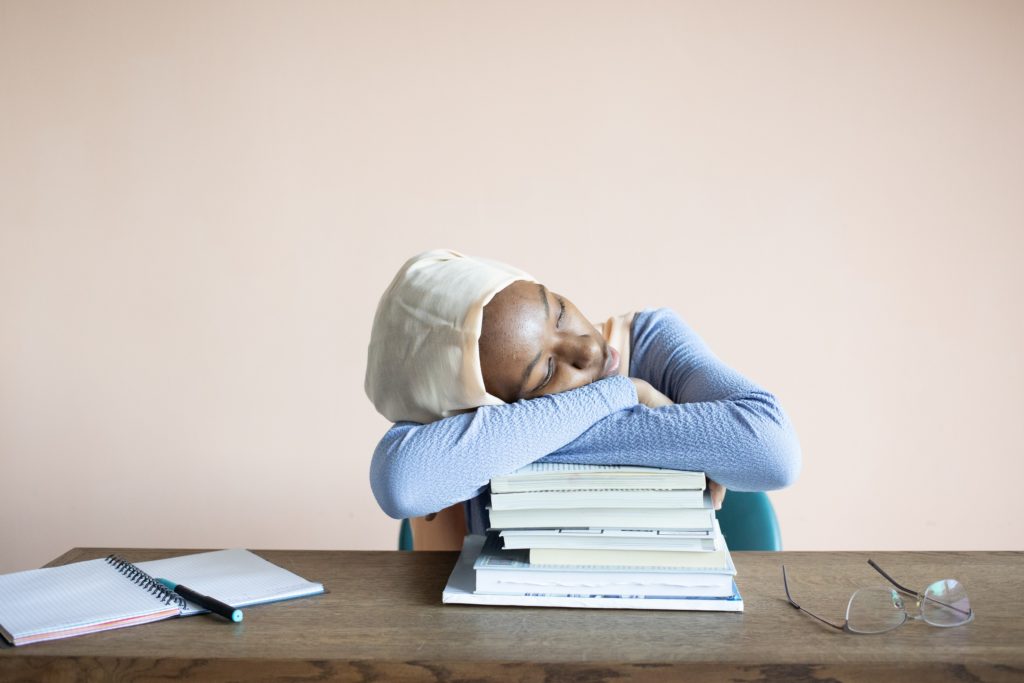“Teenage years” can make it difficult to discern the cause of moodiness in teens. Regardless of what’s happening, little rest is probably a contributing factor to moodiness in teens. A research including almost 5,000 teenagers found that anxiety and depression symptoms in teenagers were firmly connected with lack of sleep: Results shows that teenagers with symptoms of depression got 3.5 hours less sleep than the rest of the group. In addition, sleep deprivation in 15 year olds increases the probability of emotional and mental health wellness issues in the coming years.
“This longitudinal study confirms what we see clinically—that poor sleep during adolescence can be a ‘fork in the road,’ where a teen’s mental health can deteriorate if not treated,” said study co-author Michael Gradisar.
In order to help find solutions to avoid the problems that arise when teenagers are sleep-deprived, it’s essential to recognize the signs, the causes, and how to help.
Here are some common signals that may indicate that your teenager is not getting enough rest at night.
Also, other forms of sleep deprivation include acute sleep deprivation, including the symptoms above, and chronic sleep deprivation, which can lead to serious physical and mental health problems.

It is recommended that adolescents get up to nine hours of sleep every night, however, very few of them are actually getting that much sleep every night. One study conducted by the Centers for Disease Control showed that less than 9 percent of teens get enough, which answers the question why teenagers sleep easily whenever they get the chance. Some of the reasons why teens are sleep deprived is outlined below.
“Almost all teenagers, as they reach puberty, become walking zombies because they are getting far too little sleep.”
-James B. Maas, PhD, psychology and sleep expert
Sleep deprivation also has a negative impact on the functioning of the part of the brian that regulates emotions. In studies conducted by Matthew T. Feldner, a professor of psychology at the University of Arkansas, people who lost a night of sleep responded with more emotion to stressors presented in the lab.
One study examined how teenagers behave during the day when they did not get enough sleep the previous night. Sleep-deprived teens found stressful situations much more stressful and difficult than the more mature participants in the study.
Furthermore, researchers have discovered that sleep-deprived teens feel more depressed and anxious. In a study of nearly 28,000 high school students, every hour of rest lost was associated with a 38% increase in situations of feeling sad or hopeless, and a case of a 58 percent increase in suicide attempts.
Another study found that high school seniors were three times more likely to have depression symptoms if they had excessive daytime sleepiness.
Sleep-deprivations can increase the likelihood of teens using drugs, cigarettes, and alcohol. A study published in the Journal of Youth and Adolescence says that the disruption of the natural sleep cycle can significantly increase the risk of substance use, by interfering with brain functions that regulate the experience of reward, emotions, and impulsivity.
National Center on Addiction and Substance Abuse published statistics that support the claim that high school students who sleep less than eight hours a night are significantly more likely to use alcohol, vape, smoke marijuana, and become lifetime users of illegal drugs.
In addition, sleep-deprived teens tend to engage in risky behaviors, because they have little control over their impulses. A 2015 study found that sleep deprivation is linked to binge drinking, drunk driving, and unprotected sex
Below are some tips and tricks to help manage sleep deprivation.
Get our EvolutionHUB articles on the first and third Monday of each month.
September 30, 2023
Denver, CO